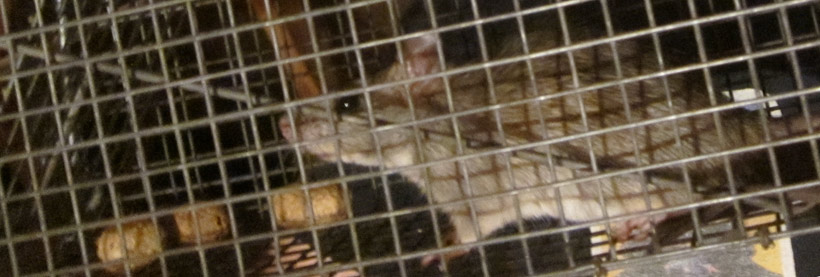Do rats eat cheese? Do they
like it?
Rats are
notorious for their strong, powerful and
tireless jaws that can go chewing on anything
they find edible for the whole day. They are
known to task themselves with continuous eating
– and these ravenously hungry creatures are
known to be stressed more by hunger than
anything else. Rats have the most diverse diet
and a digestive system that allows them to enjoy
almost anything their teeth can break as food.
But these creatures are not a stupid bunch,
given options, or when they land in your room
and find that they have a number of food items
that they can choose from, they definitely have
preferences. One more stunning aspect with rats
is that when they are presented with numerous
options for food, they will not limit themselves
to a single food item, but will then choose to
sample each of them out to see how they go with
their digestions. One of the most loved food
items from rats include meats and dairy, but how
about cheese?

You can pay witness that there are hundreds of
cartoons depicting rats with large boxes of
cheese that they seem to be enjoying. So then,
are these cartoons based on fact or fiction?
Partly, rats love cheese and partly cheese may
be dangerous to these creatures. It all
depending on the specific type of rat you are
dealing with as well as the particular type of
cheese in question. So the answer is an open one
here. Let us get into its specifics.
A study conducted by the Animal Behavior society
indicated that one of the most loved food for
city dwelling brown rats were macaroni,
scrambled eggs, cooked corn and on the top of
the list cheese. This study, combined with a
good number of regular observations indicates
that cheese is a safe food for rats, and they
love it, although there are variations that one
has to pay key attention to. Some of the rats
have shown lactose intolerance, and thus feeding
animals already with this symptom would lead
them to suffer with their digestive problems.
But cheese, due to its high fat content, is
quite a fattening diet for rats, especially if
they are not having enough of exercise
throughout the day.
On the contrary, blue cheese is indicated to be
a tougher choice when it comes to rats,
especially young ones. Blue cheese contains mold
as one of its ingredients, which is said to
bring up several complications in rats, and for
young rats these complications could have tragic
consequences. This means you should try as much
as possible to keep blue cheese away, unless you
need to use it to exterminate the rats. All
said, it best when cheese is used as an
occasionally treat rather than a staple for rat
food.
Read more: Rat Control,
Get Rats Out of the
Attic, Rat
Trapping, Rats
in the Ceiling, Rat
Feces.
|